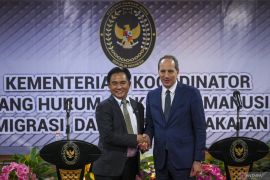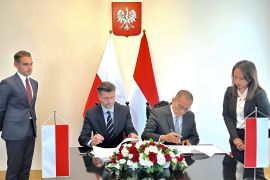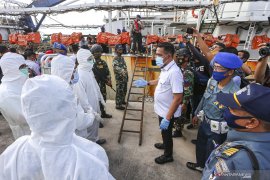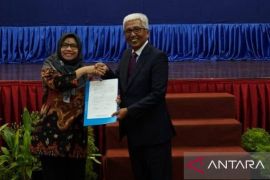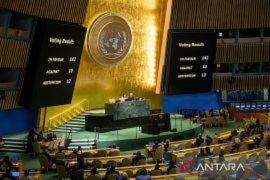"The recovery of the assets largely depends on the commitment and cooperation of the jurisdictional authorities of Indonesia and Hong Kong. The success of this process should also serve as an example for other countries to create optimism among parties involved in asset recovery cooperation," Indonesias Minister of Law and Human Rights Amir Syamsudin said in a press statement here on Tuesday.
The Indonesian law and human rights minister has filed an asset confiscation request through a mutual legal assistance (MLA) to the Hong Kong Secretary of Justice.
Based on a 2014 decision, the Indonesian government has been granted the right to confiscate Bank Century assets worth US$4,076,121 in Hong Kong.
The value fluctuates in nature owing to the fact that most of the assets were derivatives in the form of stocks. The Indonesian government claimed that its success to confiscate the asset as a first step to restore more assets overseas linked to the Bank Century corruption case.
The government has also frozen assets in other Hong Kongs jurisdiction areas such as in the Jersey worth US$16.5 million.
The MLA filed by the Indonesian government includes the governments request to confiscate assets belonging to Rafat Ali Rizvi, Hesham Al-Warraq, Robert Tantular and other corruption criminals in Hong Kong.
"The Hong Kong courts decision does not cover all of Indonesias request for asset confiscation. We believe that assets that could be confiscated should not necessarily be directly linked to the convicts, but could also be those under the control of the convicts which are managed by various legal bodies through various complex placements," the minister said.
The minister said that the Hong Kongs court decision was a result of hard work of the Ministry of Law and Human Rights and other related institutions such as the Indonesian Attorney Generals Office, the Indonesian National Police and the Ministry of Foreign Affairs.
The case dates back to late 2008 when a financially crunched Bank Century started facing liquidity and default problems during a financial crisis. It collapsed after liquidity assets worth Rp11.6 trillion were withdrawn, through its security firm Antaboga Delta Sekuritas, and allegedly stashed abroad by its owner Robert Tantular.
The ailing bank was then taken over by the Deposit Insurance Agency (LPS). It was later bailed out by the government with an alleged Rp6.7 trillion issued through a short-term funding facility (FPJP) and temporary capital participation (PMS).
This amount was much higher than the Rp1.3 trillion discussed with the House of Representatives (DPR), sparking public criticism and questions about the disbursement of public funds without the DPRs approval.
In its 2009 audit report, the State Audit Board (BPK) said it suspected that efforts had been made to engineer additional bailout funds (PMS) for the bank.
Editor: Aditia Maruli Radja
Copyright © ANTARA 2014

